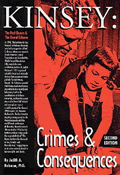Other NWV
Headlines:
New Mental Health Program Alarms Parents in Illinois
Senate Passes Unborn Victims of Violence Act
Book Banned In America While Troops Die For Freedom
TWO
SD COUNTY STATE ATTORNEY'S URGE VOTERS TO REJECT AMENDMENT A
October 1, 2004
Posted
1:05 AM Eastern
NewsWithViews.com
Two County State Attorney's in South Dakota are urging voters to reject a Constitutional Amendment on the ballot in November that would take away the right of the citizens to permanently elect their own Circuit Court Judges, a right enjoyed since South Dakota became a state. In keeping with the Tenth Amendment of the Supreme Law of the land, the U.S. Constitution, the states of the Union have many different ways of selecting or electing judges: non partisan elections, partisan elections or with nominating procedures making the Governor the final decision maker.
Constitutional Amendment A will be submitted to the voters, but would not become effective unless approved by a majority vote of the people. Amendment A would amend Article V, section 7 of the South Dakota Constitution, providing for the merit selection of circuit court judges. According to South Dakota's Attorney General, Larry Long, Amendment A would change the current law as follows:
"Under the Constitution, circuit court judges are elected on a non-political ballot for eight year terms. The Governor appoints judges to fill vacancies for the balance of unexpired terms. Nominees for vacancies are selected by the judicial qualifications commission. Amendment A would change the Constitution by establishing an appointment and retention election procedure. New judges would be appointed by the Governor from nominees selected by the judicial qualifications commission. Judges would be subject to a retention election on a non-political ballot three years after appointment, and every eight years after that, by the voters of the circuit the judge represents."
Lance Russell, Fall River County State Attorney and John Fitzgerald, Lawrence County State Attorney, are asking their fellow South Dakotans to reject this amendment:
"There is a movement to amend the state constitution, eliminating contested nonpartisan judicial elections and allowing the governor to appoint circuit court judges from a list of two or more individuals selected by a commission consisting predominantly of lawyers. Three years after the appointment, there will be a �retention� election, where the ballot will ask the voter, yes or no, if they want to retain the judge. What's the problem with that? The amendment changes the intent of the framers of our state constitution and will make our judges unaccountable.
"South Dakota was founded on the principles of populism and accountability. South Dakota was the first state to allow the people the power of initiative and referendum, and our constitution gave the people the right to elect our judges. In fact, every state entering the Union between 1846 and 1912 provided for judicial elections. This was a reaction to the feeling that the appointed judiciary had become �a bastion of unresponsive aristocracy� and that elected judges would be more independent and less apt to be influenced by the politics and cronyism of governors.
"How will the amendment make our judges unaccountable? Simply put: the people of our state will have little say in who are their judges. It will eliminate the check on the judiciary that the framers of our constitution put in place to keep elitists from having unfettered discretion to dictate their will on the people. Proponents of the constitutional amendment will counter that the retention election will be an adequate check on the discretion of the judiciary; however, retention elections have proved to be nothing more than sham elections in other states.
"Retention elections are just that�they retain incumbents. In retention election states, almost 99 percent of the judges are retained. We all know in countries where there are only one political party, they have essentially retention elections. Those elections also allowed for only one choice, and just like retention elections, are noted for low voter interest, knowledge and turnout.
"The bottom line is the proponents of Amendment A are attempting to take away a constitutional right�the right of the people to meaningfully participate in judicial selection. Who are the proponents of retention elections? Lawyers. They have already raised in excess of $20,000 to secure its passage. Why lawyers? Because the lawyers will be selecting the pool of candidates from which judges will be appointed. The proponents will say whom better than the lawyers to evaluate the abilities of judicial candidates? We say the people. We believe the people have the intelligence to evaluate the qualifications of judicial candidates, and more importantly, they don't have an financial interest in who is chosen.
"The proponents will also say that the retention system will take the politics out of the judicial selections. However, in Missouri, the first state to adopt the retention system, it has been asserted that the personal injury lawyers have succeeded in gaining control of the politics of the state, including the politics of the judicial nominating commission, and because of that Missouri is one of the favorite plaintiffs venue in America. If the retention system is adopted in South Dakota, the politics and power of judicial selection will simply go from the people to the lawyers, most likely the trial lawyers. And, we all know the acrimonious role politics plays in the selection of Federal judges. Politics will always be part of the process, the question is: who do you want making the decisions? Politicians, lawyers or you? We believe that the farther the people are removed from the decision making, the farther the courts spiral out of control and make poor decisions.
"Judges have awesome power and authority. If a judge decides to legislate law instead of interpret law the only way to hold them accountable is an election. If Amendment A passes there will be no way for the people whom judges serve to hold their judges accountable. A whole branch of the government will be un-elected no checks and balances will exist in this branch. The only beneficiaries of the amendment will be un-elected judges. The election process in South Dakota has produced fine judges who are both wise and courageous in their decisions. We are public servants and we believe it is in South Dakota's best interests to continue to elect and hold judges accountable the way the drafters of our constitution envisioned."
One group, the South Dakota Gun Owners in Rapid City, say this Amendment bodes ill for the natural right of Americans to own and bear arms: "Passage of Amendment A could indeed spell disaster for any gun owner facing criminal charges under the current gun control laws. Because judges chosen in the back room selection system are far less accountable to the people, they are much more likely to be anti-gun and to prosecute innocent gun owners with greater zeal."
� 2004 NewsWithViews.com - All Rights Reserved
Sign Up For Free E-Mail Alerts
E-Mails
are used strictly for NWVs alerts, not for sale
Send comments on this article to:
newseditor1@earthlink.net
One group, the South Dakota Gun Owners in Rapid City, say this Amendment bodes ill for the natural right of Americans to own and bear arms: "Passage of Amendment A could indeed spell disaster for any gun owner facing criminal charges under the current gun control laws.










